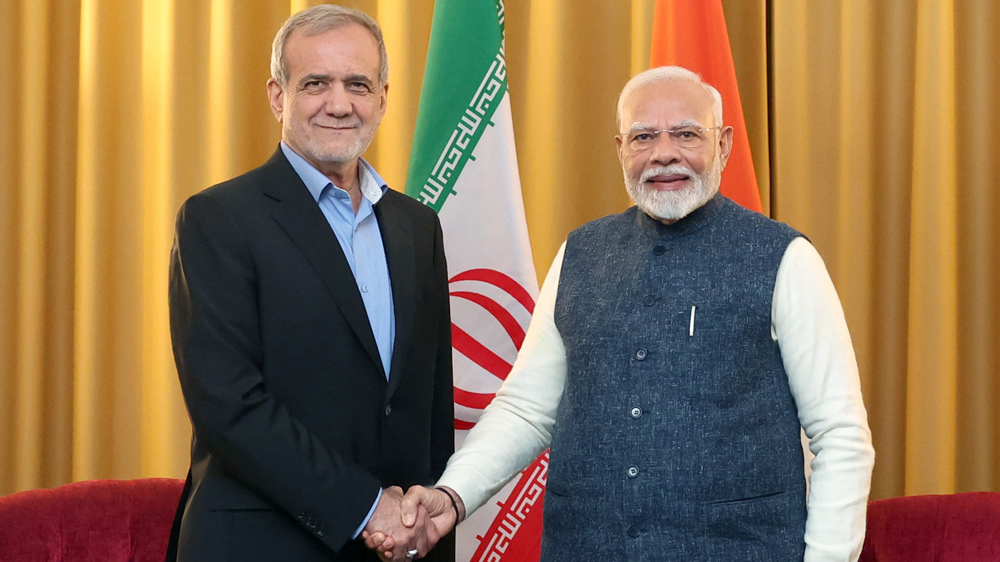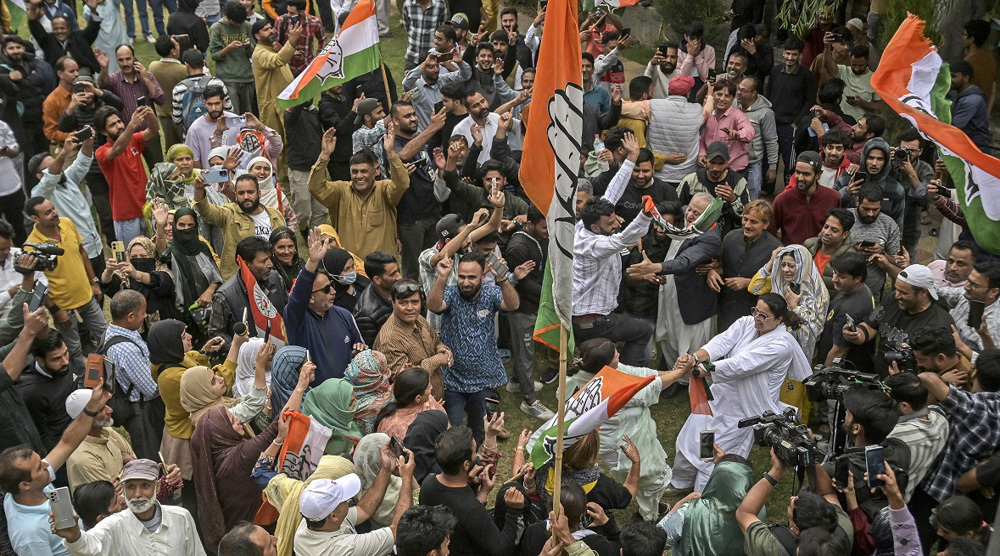India to resume military operations in Kashmir
India will resume military operations against armed groups in disputed Kashmir following the end of a rare 30-day suspension for Ramadan.
Indian Home Minister Rajnath Singh said in a post on Twitter that the New Dehli forces were being directed to take all necessary actions to prevent "militants" from launching attacks.
"While the security forces have displayed exemplary restraint during this period, the terrorists have continued with their attacks, on civilians and SFs (security forces), resulting in deaths and injuries," the minister said. "The security forces are being directed to take all necessary actions as earlier to prevent terrorists from launching attacks and indulging in violence."
Singh's office said in a separate statement on Twitter that the Indian government had decided "not to extend the suspension of operations."
The Indian minister also stated that the suspension had been ordered "in the interests of the peace-loving people" of Kashmir "to provide them a conductive atmosphere to observe Ramadan."
On Thursday, Indian Prime Minister Narendra Modi held a cabinet meeting to discuss whether to extend the initiative.

The Indian army's operations were halted on May 16 at the start of the Muslim fasting month across Indian-controlled Kashmir.
Officials said at the time that troops would stop the pursuit of "militants" and door-to-door house searches but would still retaliate if attacked.
The New Delhi government's suspension, however, failed to affect the mounting death toll in the volatile region.
On June 3, a young man died after being hit by a paramilitary vehicle during a demonstration. A number of fighters and at least five soldiers were also killed in a series of fierce clashes.
Clashes also broke out after Eid prayers in Srinagar with Indian police and paramilitary forces firing tear smoke shells and pellet guns at hundreds of protesters throwing rocks at them near the main Eidgah prayer ground.
Last year was the deadliest in Kashmir over the past decade.
The UN Human Rights chief has recently called for an international investigation into abuses in the region.
Tensions have been running high in Srinagar in recent weeks against the backdrop of the death of two protesters after being crushed by paramilitary vehicles. The police are accused of firing teargas and shotgun pellets inside the city's main mosque, where the two individuals died.
Kashmir has been divided between India and Pakistan since the end of the British colonial rule in 1947. Both sides claim the Himalayan region in full.
New Delhi accuses Islamabad of supporting pro-independence fighters, an allegation rejected by the Pakistani government, which, in turn, is critical of India's heavy military deployment to Kashmir and its crackdown against the region's Muslim population.
Russia launches 'ICBM' for first time against Ukraine: Kiev
Scores killed as Takfiri terrorists target Shia Muslims in Pakistan
Pezeshkian to US, Europeans: You are killing women, children
VIDEO | COP29: another climate failure?
ICC issues arrest warrants for Netanyahu, Gallant for war crimes
Israeli strikes kill 88 Palestinians in northern Gaza
American voters plainly rejected complicity in Gaza genocide: Iran FM spox
ICC should issue more arrest warrants for Israeli authorities over Gaza genocide: UN expert











 This makes it easy to access the Press TV website
This makes it easy to access the Press TV website